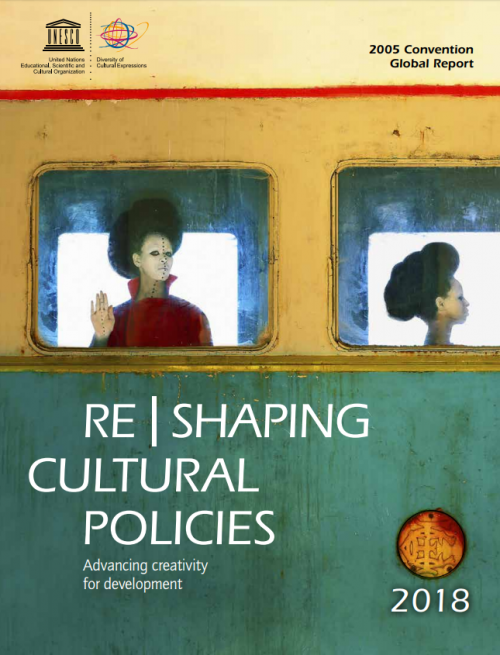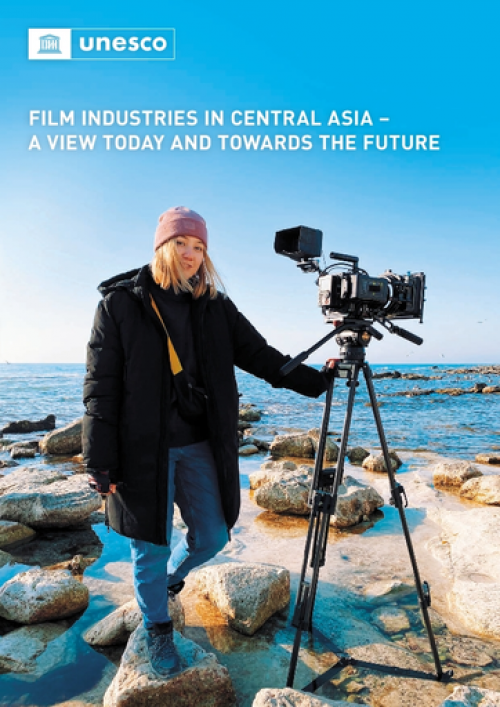Publications
PERSPECTIVES for the diversity of cultural expressions is a series of policy briefs designed to inform and inspire discussions among Parties of the 2005 Convention on the Protection and Promotion of the Diversity of Cultural Expressions. Its objective is to identify and analyse emerging trends in the creative sectors.
This peer-to-peer learning toolkit is designed to assist in the process of creating, strengthening and updating the policy environment supporting CCIs and sectors at the local and national levels. It provides policymakers, civil society representatives, cultural practitioners and stakeholders with a step-by-step practical guide to conceive and implement peer-to-peer learning with knowledge-providers when developing regulatory, policy and strategic frameworks for creativity.
The UNESCO Global Report, Re|Shaping Policies for Creativity – Addressing culture as a global public good, is the third edition of a series designed to monitor the implementation of the 2005 Convention on the Protection and Promotion of the Diversity of Cultural Expressions.
The production and distribution of film and audiovisual works is one of the most dynamic growth sectors in the world. Thanks to digital technologies, production has been growing rapidly in Africa in recent years. The case of "Nollywood", with about 2,500 films made each year, is emblematic in this respect. It has enabled the emergence of a local industry of production and distribution with its own economic model.
South-East Asia is a region rich in cultural diversity and dynamic in its creativity. There is a great potential for the countries of the region to capitalize on their cultural resources and their dynamic young populations to gear toward the creative economy and fully realize the role of culture in achieving sustainable development.
The COVID-19 pandemic and the crisis it created have had a devastating effect on the cultural and creative industries, revealing and magnifying their pre-existing volatility. Drawing on policies and measures adopted during the crisis, this practical guide highlights emergency measures that have been deemed effective and beneficial, assesses emerging trends, identifies new and existing gaps and offers practical advice to help policymakers position the cultural and creative industries in social and economic recovery plans.
The Global Report series monitors the implementation of the 2005 Convention and provides new and valuable evidence to inform cultural policy making and advance creativity for development. The 2018 edition examines how the 2005 Convention has inspired policy change at the global and country level and puts forward a set of policy recommendations for the future, addressing the adaptation of cultural policies to rapid change in the digital environment, based on human rights and fundamental freedoms of expression.
The 1980 Recommendation concerning the Status of the Artist was adopted by the UNESCO General Conference at its twenty-first session in 1980. Decades later, the Recommendation remains as relevant today as in 1980 considering the remaining challenges worldwide in the area of social and economic rights, decent working conditions, training opportunities and the impact of digital technology on the work of artists and cultural professionals. This brochure provides a brief overview of the main topics covered by the 1980 Recommendation.
The overall economic impact, social role and status of cultural professionals involved in the film industries of the Central Asian countries (Kazakhstan, Kyrgyzstan, Tajikistan and Uzbekistan) remain relatively understudied. However, the film industry is recognized as one of the oldest and most developed cultural and creative industries of the region since the mid-20th century. In this context, this publication assesses the film industries of Central Asia and concerned legislation.
This brief highlights the impact of COVID-19 on the media and culture sector, hit hard by unemployment and closed productions. It analyses how the sector’s diversity in terms of contract types and occupations creates challenges in accessing social protection, safety and health, and economic relief programmes. The brief also offers policy options, drawing from countries’ examples and initiatives from workers’ and employers’ organizations, to mitigate the economic impact of the pandemic on the sector.













